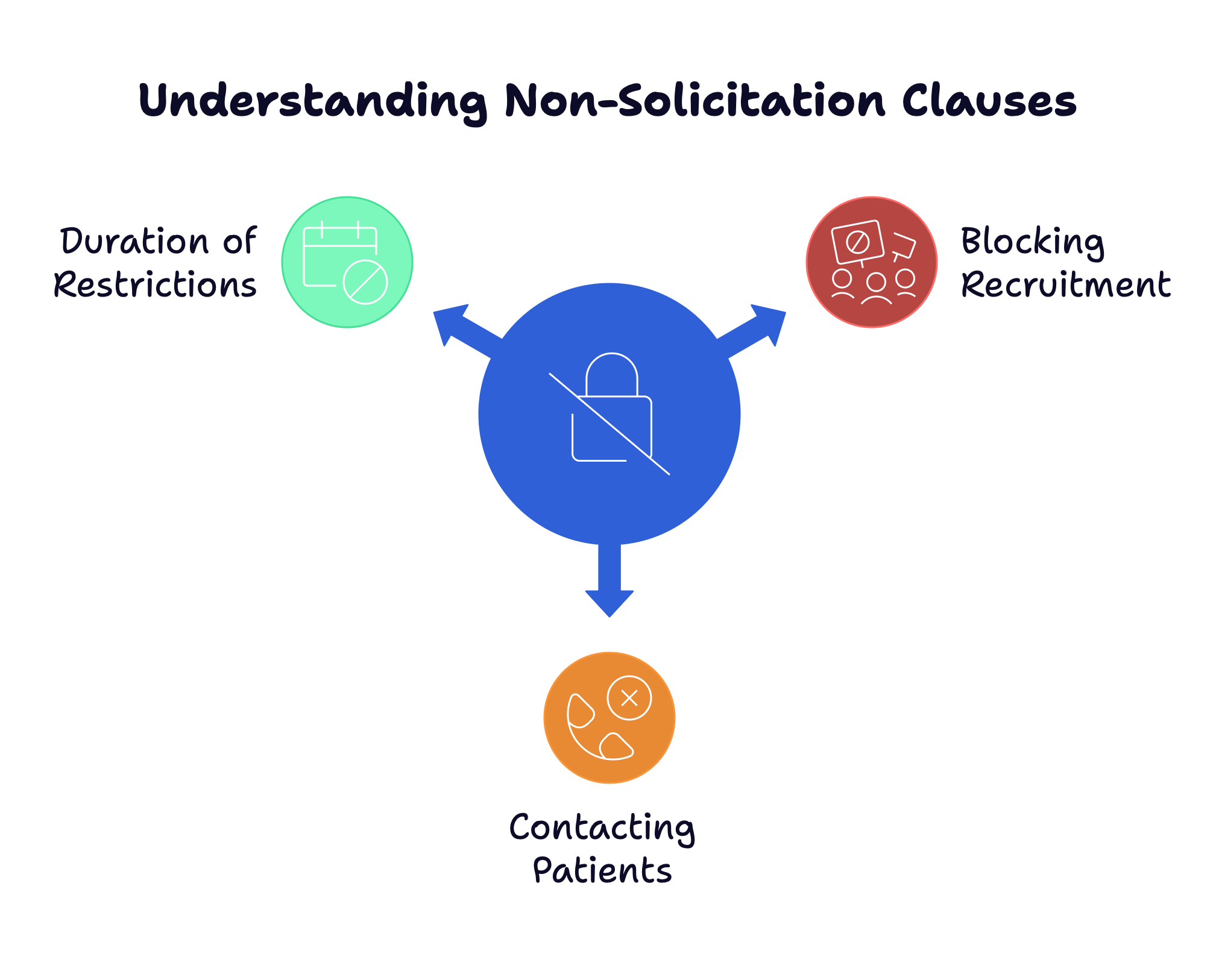
Non-Solicitation Clauses in Physician Contracts
Key Takeaways
✅ Non-solicitation clauses can block you from recruiting staff or contacting patients after you leave.
✅ These restrictions can last up to one year after your departure.
✅ Always clarify what counts as “solicitation” before signing your contract.
What Exactly Is a Non-Solicitation Clause?
A non-solicitation clause is common in physician contracts and is easier to violate than you might expect.
It restricts you from:
- Recruiting or hiring your former employer’s staff.
- Contacting patients or referring physicians you worked with while employed.
How Long Do These Restrictions Last?
Typically, these clauses last one year after you leave your job.
Some contracts extend this restriction to employees who left the practice up to a year before you did.
Example: Imagine leaving a practice, starting your own clinic, and finding out you can’t even hire a nurse who quit six months before you.
Does This Mean I Can’t Treat My Own Patients?
Not exactly.
If a patient contacts you on their own, that’s generally fine.
But if you directly reach out, even to inform them about your new clinic, that could violate your contract.
Some contracts define “solicitation” vaguely, which makes this part especially important to clarify.
Is This Enforceable?
Most non-solicitation clauses are enforceable if they are reasonable in scope and duration. Courts usually uphold one-year bans as common practice.
Key things to check:
- Who’s covered? Does it apply only to people you worked with or any former employee?
- Time limit: Is the restriction six months, a year, or longer?
- Patients and referrals: Does it stop you from even informing patients where you’ve moved?
What Happens If I Break a Non-Solicitation Clause?
Violating a non-solicitation clause can have serious consequences:
- Lawsuits: Employers may sue for damages if they believe you violated the agreement
- Financial Penalties: Some contracts outline specific fines for breaking the clause
- Reputation Risks: Accusations of “poaching” can harm your standing in the medical community

Questions to Ask Before Signing
Before agreeing to any non-solicitation terms, ask these:
- How long does the restriction last?
- Does it apply to all staff or only certain roles?
- What counts as “solicitation”? Sending an email? Taking a patient’s call? Sending a holiday card?
- Am I responsible if a patient finds me without my involvement?
- Does this clause apply even if the employer terminates me?
Protect Yourself by Understanding Non-Solicitation Clauses
Non-solicitation terms might seem minor, but they can limit your career in ways you don’t expect.
To avoid surprises, consider The Real Contract Course. This 2-hour video course breaks down tricky contract language, like non-solicitation clauses, in plain English. It prepares you to ask smarter questions and make better use of your lawyer's time.
By understanding what’s in your contract before you sign, you’ll know exactly what you're agreeing to and how to avoid future headaches.






